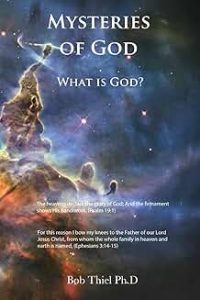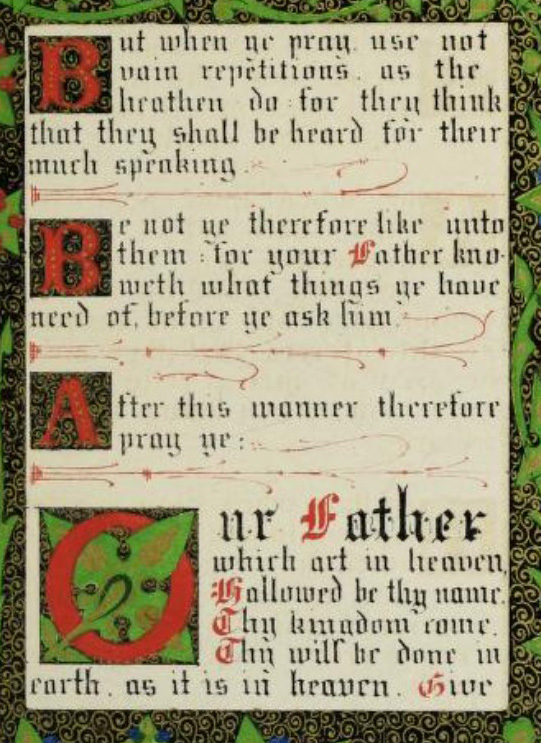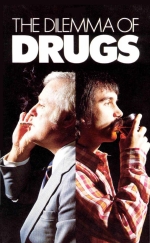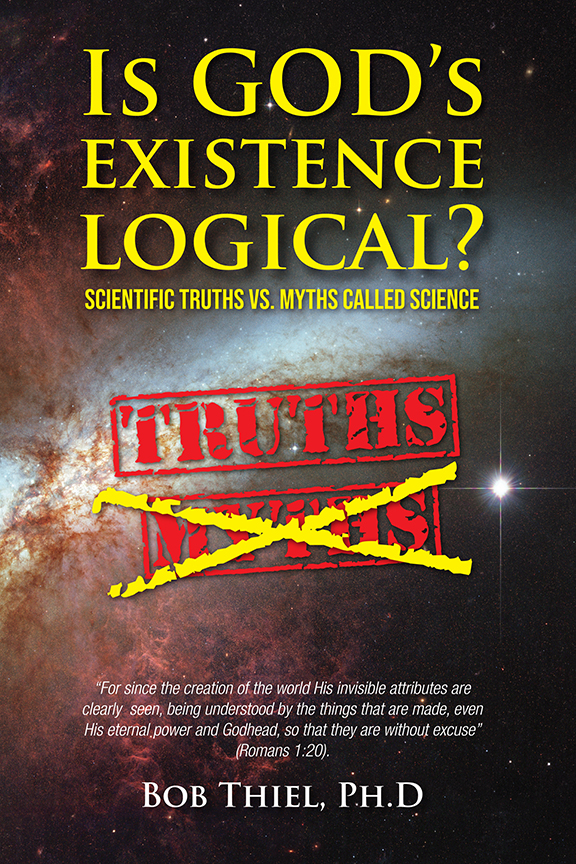Canadian government suicide assistance easier to attain than health assistance
Friday, April 4th, 2025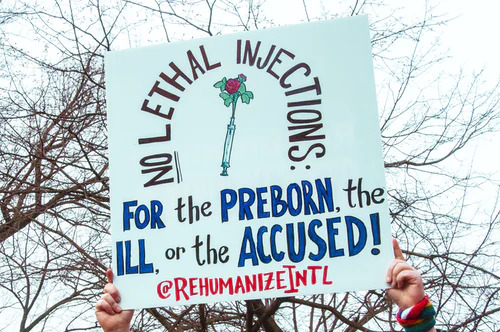
Anti-euthanasia poster (Unsplash photo)
The Canadian government reportedly makes it easier to be assisted for suicide than to get health assistance to live:
‘I could live 30 years – but plan to die’: Has assisted dying in Canada gone too far?
4 April 2025
April Hubbard sits on the theatre stage where she plans to die later this year.
She is not terminally ill, but the 39-year-old performance and burlesque artist has been approved for assisted dying under Canada’s increasingly liberal laws. …
She’s been taking strong opioid painkillers for more than 20 years and applied for Medical Assistance in Dying (Maid) in March 2023. While she could yet live for decades with her condition, she qualified to end her life early seven months after applying. For those who are terminally ill it is possible to get approval within 24 hours. …
Critics say Canada is an example of the “slippery slope”, meaning that once you pass an assisted dying law it will inevitably widen its scope and have fewer safeguards.
Canada now has one of the most liberal systems of assisted dying in the world, similar to that operating in the Netherlands and Belgium. It introduced Maid in 2016, initially for terminally ill adults with a serious and incurable physical illness, which causes intolerable suffering. In 2021, the need to be terminally ill was removed, and in two years’ time, the Canadian government plans to open Maid to adults solely with a mental illness and no physical ailment.
Opponents of Maid tell us that death is coming to be seen as a standard treatment option for those with disabilities and complex medical problems.
“It is easier in Canada to get medical assistance in dying than it is to get government support to live,” says Andrew Gurza, a disability awareness consultant and friend of April’s. …
There were 15,343 Maid deaths in 2023, representing around one in 20 of all deaths in Canada – a proportion that has increased dramatically since 2016 and is one of the highest in the world. …
Dr Ramona Coelho, a GP in London, Ontario, whose practice serves many marginalised groups and those struggling to get medical and social support. She’s part of a Maid Death Review Committee, alongside Dr Trouton, which examines cases in the province.
Dr Coelho told me that Maid was “out of control”. “I wouldn’t even call it a slippery slope,” she says “Canada has fallen off a cliff.” https://www.bbc.com/news/articles/c3wxq28znpqo
I have been warning about the situation in Canada for some time (e.g. Thiel B. NN: KILLING THE HELPLESS: Canada set to legalize euthanasia for mentally ill patients. COGwriter, November 2, 2023), and it looks like it continues to worsen.
Let me add that the Canadian government even has ads promoting it. I also heard a report on the radio today from a woman who mentioned that she and her mother were repeatedly pressured to sign a form for the mother to be filled.
What is happening in Canada and other lands that allows euthanasia brought to mind the 1973 science-fiction movie Soylent Green. In that film, humans ended up in the food supply, as that was considered to be more beneficial for the government than to have people live longer. Although the modern euthanized do not end up in the food supply, it would not surprise me if Canadian government officials believe that by having physically and/or mentally ill people killed, this will reduce costs for Health Canada.
This suicidal invention is wrong.
The Apostle Paul warned:
28 And even as they did not like to retain God in their knowledge, God gave them over to a debased mind, to do those things which are not fitting; 29 being filled with all unrighteousness, sexual immorality, wickedness, covetousness, maliciousness; full of envy, murder, strife, deceit, evil-mindedness; they are whisperers, 30 backbiters, haters of God, violent, proud, boasters, inventors of evil things, (Romans 1:28-30).
Yes, those who do not want to retain God in their knowledge end up with a debased mind to do things that are not fitting, including murder and being inventors of evil things: abortion and euthanasia come to mind fitting both of those categories (as well as others in the list from the Apostle Paul).
Here is some information about doctors killing patients:

Active euthanasia involves “the direct administration of a lethal substance to the patient by another party with merciful intent”… Physician-assisted suicide refers to a medical professional aiding a patient in terminating their life upon the patient’s request. (Med Princ Pract. 2019 Jun; 28(3): 199–207)
Basically, euthanasia is a form of intentional poisoning. It cannot be done right, because it is morally wrong.
The late American Dr. Jack Kevorkian (nicknamed “Dr. Death”) pushed for physician-assisted suicide during his life. And sadly, it has been approved in 10 states in the USA, plus the District of Columbia.
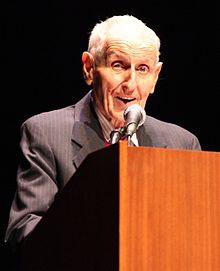
“Dr. Death”
Here is some information about him:
3 June 2011
Jack Kevorkian, the controversial American doctor who claimed to have assisted more than 100 suicides, has died aged 83.
To his critics, he was Dr Death. To other detractors, Jack the Dripper.
Kevorkian was given plenty of nicknames after receiving international attention in the 1990s, throughout which he waged a defiant campaign to help people end their lives. …
His career ignited in 1989 when he demonstrated his “suicide machine” on television and even had business cards printed advertising his services …
Wesley J Smith, author and leading campaigner against assisted suicide, says the media fawned over him and failed to see the damage he wrought.
“I think his more important place in contemporary history was as a dark mirror that reflected how powerful the avoidance of suffering has become as a driving force in society, and indeed, how that excuse seems to justify nearly any excess.”
Kevorkian was prophetic in calling for the creation of euthanasia clinics, which now exist in Switzerland, says Smith. https://www.bbc.com/news/world-us-canada-13649381
As far as media acceptance, notice something from last century:
The abortion attitude is already being extended to newborn infants. Pro-abortionists themselves are becoming bolder in admitting the connection. Thus Dr. Robert Crist, testifying before the Louisiana state legislature, said that he was just as comfortable killing a newborn child. a week old as a week before birth, and that only lawyers haggle over this point of birth as having any special significance (“A New Conscience of the Pro-Life Movement,” Conservative Digest, December, 1979, p. 19).
The liberal, pro-abortion New Republic reflects the same attitude. The following words were taken from its July 2; 1977, editorial on abortion. The words accurately reflect the magazine’s position. They also reflect just where the abortion attitude leads:
“Metaphysical arguments about the beginning of life are fruitless. But there is clearly no logical or moral distinction between a fetus and a young baby; free availability of abortion cannot be reasonably distinguished from euthanasia. Nevertheless we are for it. It is too facile to say that human life is always sacred; obviously it is not…” (Calkins K. The Silent Holocaust. Plain Truth, September 1980)
The atheistic media is all about its own wants and desires. They do not understand God’s plan, so they see no value in allowing suffering as they view it. They are among those who believe they “have no hope” (1 Thessalonians 4:13). But you do not have to be in ignorance like the media is. To learn more about God’s plan, check out the free online book: The MYSTERY of GOD’s PLAN: Why Did God Create Anything? Why Did God Make You?
Related to infanticide, the Continuing Church of God (CCOG) put out the following video on our Bible News Prophecy YouTube channel:
February 23, 2019 was declared a ‘day of mourning’ by some concerned about infanticide and other ramifications of the State of New York’s “Reproductive Health Act.” The American College of Pediatricians reported they were grieved by efforts by several states to allow infanticide. Statements from disgraced Virginia Governor Ralph Northam, as well as proposed laws in Illinois, Rhode Island, and Vermont have gotten more to be concerned about infanticide in the United States of America. Nebraska Senator Ben Sasse proposed S. 311 the ‘Born-Alive Abortion Survivors Protection Act failed in a voice vote–and 17 “public health organizations’ denounced S. 311 as “a dangerous government intrustion.” Is the destruction of humans wrong. Does human life begin at conception? Is there a light flash at conception? Has there been infanticide throughout human history? What does God say about the shedding of “innocent blood’? What about Judaism and Molech?
Here is a link to the sermonette video: American Infanticide.
The Continuing Church of God (CCOG) also put together the following video on our Bible News Prophecy YouTube channel (it is the same program that is also on Brighteon:
On October 30, 2020, New Zealand voters approved a measure to allow euthanasia and physician assisted suicide. Is this the legalization of mercy killing or murder? Is poison used to end life with euthanasia? What other lands allow euthanasia? Why are some leaders and some in the media supportive of physician assisted suicide and abortion? Is suicide murder? Did the original Hippocratic Oath permit or prohibit euthanasia or abortion? What has been the Church of God position on mercy killing and abortion? Dr. Thiel addresses these issues and more.
Here is a link to the video: Euthanasia: Mercy killing or murder?
Notice what the Bible warns about following the wrong type of leadership that many are accepting:
12… O My people! Those who lead you cause you to err, And destroy the way of your paths (Isaiah 3:12).
16 For the leaders of this people cause them to err, And those who are led by them are destroyed (Isaiah 9:16).
32 who, knowing the righteous judgment of God, that those who practice such things are deserving of death, not only do the same but also approve of those who practice them. (Romans 1:32)
Perhaps I should add that the idea of physician-assisted suicide is also a violation of the Hippocratic oath that medical doctors used to take (and it originally prohibited assisting in causing abortion).
Notice something related to medical ethics and the Hippocratic oath:
Code of Ethics
The most current version of the American Medical Association‘s Code of Ethics states that physician-assisted suicide is prohibited. It prohibits physician-assisted suicide because it is “fundamentally incompatible with the physician’s role as healer” and because it would be “difficult or impossible to control, and would pose serious societal risks”. [18]
Hippocratic Oath
Some doctors[19] remind that physician-assisted suicide is contrary to the Hippocratic Oath, which is the oath historically taken by physicians. It states “I will give no deadly medicine to anyone if asked, nor suggest any such counsel”.[20][21] The original oath however has been modified many times and, contrary to popular belief, is not required by most modern medical schools, nor confers any legal obligations on individuals who choose to take it.[22] There are also procedures forbidden by the Hippocratic Oath which are in common practice today, such as abortion. (Assisted Suicide. Wikipedia, accessed 10/30/20)
Yes, both euthanasia and abortion are prohibited by the Hippocratic Oath. Physicians are not supposed to be involved with murder, but assisting with healing.
The Bible teaches that one is not to murder (Exodus 20:13). And that includes murdering oneself, as well as one’s unborn baby. Notice also the following:
Is suicide a crime? …
God commands: “THOU SHALT NOT KILL” (the sixth commandment). Webster defines the word kill as “to deprive of life.” To commit suicide, then, is breaking one of the Ten Commandments -and is definitely condemned by God. Paul admonishes us saying, “Know you not that you are the temple of God, and that the Spirit of God dwelleth in you?
If any man DESTROY (KJV margin) the temple of God, him shall God DESTROY; for the temple of God is holy, which temple you are” (1 Cor. 3 : 16, 17 ) . “What, know you not that your BODY is the temple of the Holy Spirit which is in you, which you have of God, and you are not your own?” (I Cor. 6: 19). No murderer-or suicide-has eternal life abiding in him (I John 3: 15). He has no hope unless and until in the general resurrection after the millennium he repents of his sin (Matthew 11 :20-24). (Plain Truth. January 1960, pp. 15-16)
What about mercy killings (euthanasia), capital punishment, killing in self-defense, taking revenge, “just” wars, abortions (killing of unborn infants) and suicide? God, the giver of life (Gen. 2:7, Deut. 32:39), has the right to take any life if and when He chooses. But man does not have that power, unless God grants it to him. (McNair R. Could You Be Guilty of Murder? Good News, January 1983)
Subtle forms of murder include abortion, euthanasia … (Crime can be stopped…here’s how! Ambassador College, 1975)
Both abortion and euthanasia are wrong.
Let me add that refusing extreme medical interventions is NOT wrong. But having someone poison someone else, which is what euthanasia via a physician pretty much always is, is wrong.
Regarding suicide itself, we put out the following video:
Suicides Up! Why?
A new report shows that the number of suicides in the USA broke a record in 2022 that was surpassed with a new record in 2023. Many ‘experts’ have no answers for why this is occurring. Suicides have gone up since the FCC approved ‘988’ as the national suicide prevention telephone number. What are factors that seem to contribute to increased suicides? Do 52% of Americans report loneliness? Are more Americans depressed than before? Do more despair of death? What about the influence of religion, marriage, and family? Does money make success? What is truth? Does the Bible speak about how to be happy? What about reliance on God? What about the LGBTQ influence? Has social media increased suicide rates among young men and women? Why? Should you talk with people who say they are considering suicide? What, according to the International Association for Suicide Prevention, are tips to help you assist those who are suicidal? Does suicide end existence according to the Bible? Why did God create anything? Why did God make you? What is your purpose? What about the purpose of everyone else? Dr. Thiel and Steve Dupuie discuss these topics.
Here is a link to our video: Suicides Up! Why?
Suicide is never the answer.
Suicide is wrong, whether or not the government is involved.
The Bible teaches:
1 Cry aloud, spare not;
Lift up your voice like a trumpet;
Tell My people their transgression,
And the house of Jacob their sins. (Isaiah 58:1)
Euthanasia is one of those sins that we are denouncing.
The destruction of the USA, and its British-descended allies including Canada, is coming and disobedience to various laws of God will be the reason.
Physician-assisted suicide, infanticide, and abortion are wrong.
Some items of possibly related concerns may include:
Canada in Prophecy: What Does Bible Prophecy, Catholic Prophecy, and other Predictions Suggest About the Future of Canada? There are prophecies that suggest involvement with Canada. And many are not positive about its future. A sermon of related interest is also available: Canada in Prophecy.
Australia and New Zealand in Prophecy Do biblical prophecies help explain the wealth blessings for Australia and New Zealand? Might cursings from disobedience come in the 21st century? Here is a link to a related sermon: Australia and New Zealand: Origins and Prophecy.
Anglo – America in Prophecy & the Lost Tribes of Israel Are the Americans, Canadians, English, Scottish, Welsh, Australians, Anglo-Saxon (non-Dutch) Southern Africans, and New Zealanders descendants of Joseph? Where are the lost ten-tribes of Israel? Who are the lost tribes of Israel? What will happen to Jerusalem and the Jews in Israel? Will God punish the U.S.A., Canada, United Kingdom, and other Anglo-Saxon nations? Why might God allow them to be punished first? Here is a link to the Spanish version of this article: Anglo-América & las Tribus Perdidas de Israel. Information is also in the YouTube sermons titled Where are the Ten Lost Tribes? Why does it matter? and British are the Covenant People. A short YouTube of prophetic interest may be: Are Chinese threats against Australia for real?
Will the Anglo-Saxon-Celtic Nations be Divided and Have People Taken as Slaves? Will the lands of the United States, United Kingdom, Canada, Australia, and New Zealand be divided? What about Jerusalem? What does Bible prophecy teach? Are there non-biblical prophecies that support this idea? Who will divide those lands? Who will end up with the lands and the people? Here is a link to a video titled Will the USA and other Anglo-nations be Divided and Their People Made Slaves? Here is a related item in the Spanish language ¿Serán divididas las naciones anglosajonas?
British are the Covenant People What do ‘British’ and ‘Britain’ mean in Hebrew? Are the descendants of the Anglo-Saxons people of the covenant? Does the British royal family connect to the throne of David? What does the Bible teach? What does history show us? Is there any DNA evidence related to British-Israelism? When did Christianity make it to the British Isles? Could Jeremiah have made it to the British Isles? What type of Christians made it to the British Isles? Did the last King of England believe in British Israelism?
Abortion, the Bible, and a Woman’s Right to Choose Do you know what the Bible teaches on this? Has the Roman Catholic Church allowed abortions? What about the real Church of God? Some may wish to view the YouTube videos: Abortion and Birth Control: History and Scriptures. Abortion, the Bible, and US Debt, American Infanticide, and Land of ‘Free’ Abortions and Debt.
Marijuana: Should a Christian Get High? There is increasing acceptance of the use of marijuana. How should Christians view this? Here is a related video titled How Should a Christian View Marijuana?
The Ten Commandments: The Decalogue, Christianity, and the Beast This is a free pdf book explaining the what the Ten Commandments are, where they came from, how early professors of Christ viewed them, and how various ones, including the Beast of Revelation, will oppose them. A related sermon is titled: The Ten Commandments and the Beast of Revelation.
The Ten Commandments Reflect Love, Breaking them is Evil Some feel that the ten commandments are a burden. Is that what Jesus, Paul, Peter, James, and John taught? Here is a link to a video The Ten Commandments: Loving God.
Crime can be stopped…here’s how! This was a booklet that was edited with some updates by Dr. Thiel. Here is a link to a related sermon: Crime and How it Will be Stopped!
The MYSTERY of GOD’s PLAN: Why Did God Create Anything? Why Did God Make You? This free online book helps answers some of the biggest questions that human have, including the biblical meaning of life. Here is a link to three related sermons: Mysteries of God’s Plan, Mysteries of Truth, Sin, Rest, Suffering, and God’s Plan, and The Mystery of YOU.







